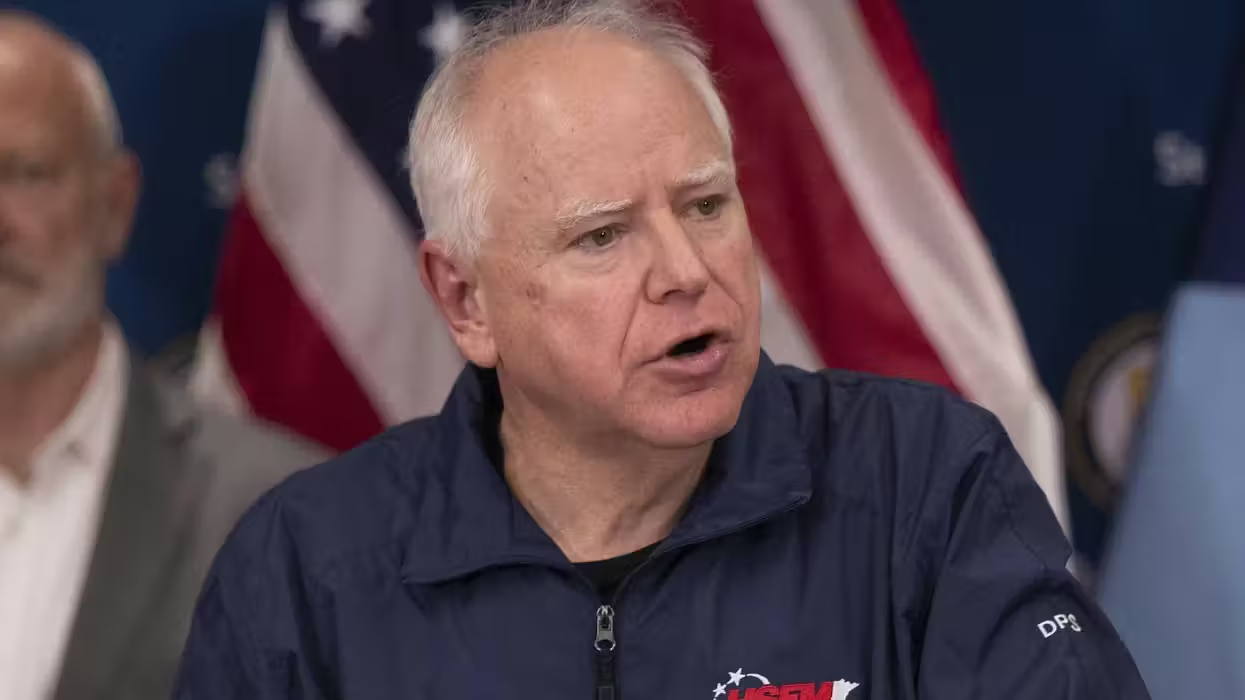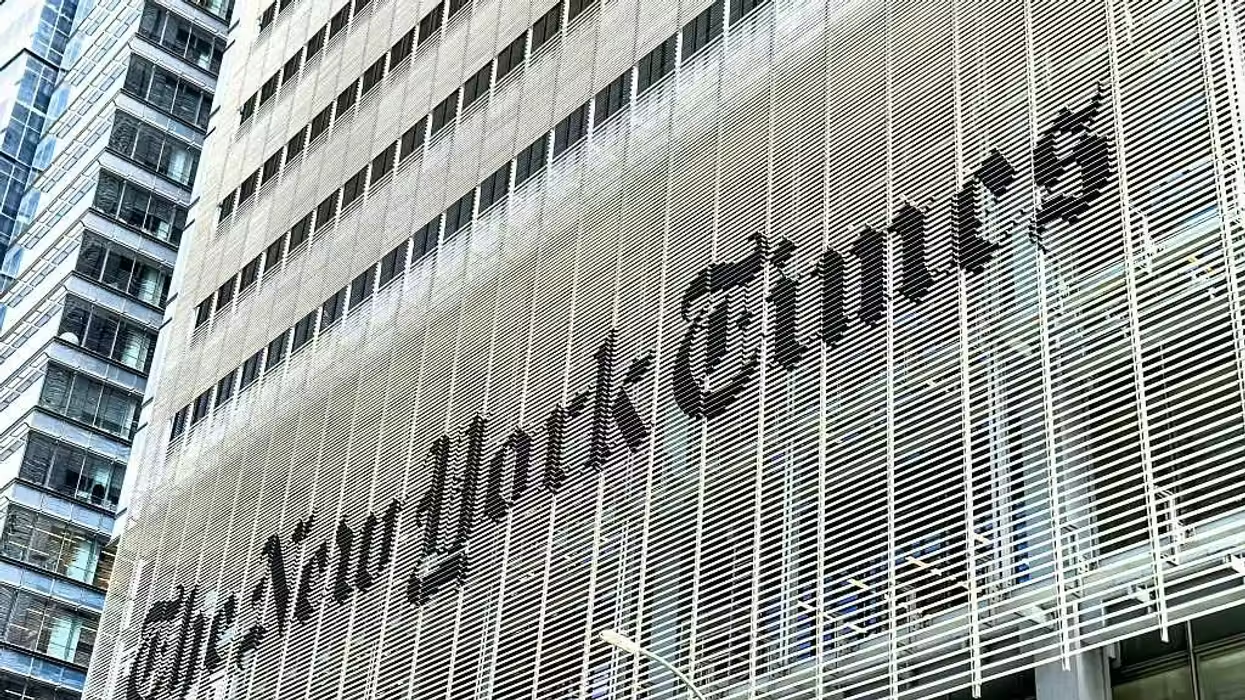© 2026 Blaze Media LLC. All rights reserved.
NY Times: 'Tumult of Arab Spring Prompts Worries in Washington
September 18, 2011
As the "Arab Spring" rolled along, may were quick to praise the new insurgent spirit in corners of the world where freedom has not widely flourished. Glenn Beck, however, raised continual concerns that the tidal wave of change might bring deeply troublesome outcomes. Beck was widely criticized for his arguments -- even in conservative circles.
Now, as each month goes by, the supposed promise of the Arab Spring seems increasingly fragile. Even the New York Times is now highlighting the increasing "worries in Washington" as the "tumult" in the region rumbles along.
Secretary of State Hillary Clinton told New York Times' reporters and editors in a recent interview, that the US is facing an Arab awakening that nobody could have imagined...one that is "sweeping aside a lot of the old preconceptions."
But the Times focuses on some of the worst-case scenarios that are now in play:
"What if the Palestinians’ quest for recognition of a state at the United Nations, despite American pleas otherwise, lands Israel in the International Criminal Court, fuels deeper resentment of the United States, or touches off a new convulsion of violence in the West Bank and Gaza?Or if Egypt, emerging from decades of autocratic rule under President Hosni Mubarak, responds to anti-Israeli sentiments on the street and abrogates the Camp David peace treaty, a bulwark of Arab-Israeli stability for three decades?"
As relations deteriorate between Israel and both Egypt and Turkey, Washington finds itself in an awkward position as its three strongest American allies in the region are at odds.
"Diplomacy has never been easy in the Middle East, but the recent events have so roiled the region that the United States fears being forced to take sides in diplomatic or, worse, military disputes among its friends."
Beck, as many of you know, has focused a great deal of attention on the dangerous unrest that has spread in the Middle East following the Arab Spring and how much this bodes ill for Israel.
The Middle East Media Research Institute recently reported on a delegation of Sudanese extreme Islamists who rallied in Gaza, preaching that, "The way to achieve change is through fighting, through Jihad."
"Director of Sudanese Ministry of International Cooperation Ahmad Malek Ahmad: The way to achieve change is through fighting, through Jihad. There is no other way. Today, on Jerusalem Day, we saw the banners of the various mujahideen factions raised… You could see these banners raised by the men, whose cries ripped through the skies: "The Koran is our constitution, the Prophet Muhammad is our master, Jihad is our path, and death for the sake of Allah is our loftiest aspiration." I wish I could have kissed all these banners.......
We've come here, along with the mujahid Hajj Majed, commander of the mujahideen in Sudan. He has come from Kurdufan, along with 5,000 mujahideen, in order to fight the enemy who incited against us – the Jews. Allah willing, we will be victorious. This is Hajj Majed, and he yearns to meet his death here."
The United States and Europe raced Sunday to avert or delay the looming United Nations showdown over Palestinian statehood that could crush the already dim Mideast peace prospects. Secretary Clinton and the EU foreign policy chief Catherine Ashton met in New York Sunday in an increasingly desperate effort to bring Israel and the Palestinians back to negotiations without antagonizing either side or embroiling the region in new turmoil.
The Palestinians have rejected proposals put forth by former UK Prime Minister Tony Blair and seconded by U.S. envoys Dennis Ross and David Hale that would give the Palestinians the "attributes of a state," including membership in nonjudicial international organizations, without actual statehood.
"It is too late now,"Mahmoud Abbas aide Nabil Shaath told The Associated Press. "The proposals (that) came to us ... are not good even as a starting point."
The crisis involving the Palestinian statehood comes as Israel's ambassador is expelled from Turkey, and the nation's embassy in Cairo is stormed and the one in Jordan is faced with protesters outside.
“The region has come unglued,” Robert Malley, a senior analyst in Washington for the International Crisis Group told the Times. “And all the tools the United States has marshaled in the past are no longer as effective.”
As the uprising has brought change to the region, the Obama administration watches to see what will emerge, and what threat or opportunity this brings to America and our allies.
“It’s a great opportunity for the United States, but we are constrained by budget and to some extent constrained by political obstacles,” Secretary Clinton said to the Times. “I’m determined that we’re going to do as much as we can within those constraints to deal with the opportunities that I see from Tunisia to Libya and Egypt and beyond.”
The Associated Press contributed to this article.
Want to leave a tip?
We answer to you. Help keep our content free of advertisers and big tech censorship by leaving a tip today.
Want to join the conversation?
Already a subscriber?
more stories
Sign up for the Blaze newsletter
By signing up, you agree to our Privacy Policy and Terms of Use, and agree to receive content that may sometimes include advertisements. You may opt out at any time.
Related Content
© 2026 Blaze Media LLC. All rights reserved.
Get the stories that matter most delivered directly to your inbox.
By signing up, you agree to our Privacy Policy and Terms of Use, and agree to receive content that may sometimes include advertisements. You may opt out at any time.







